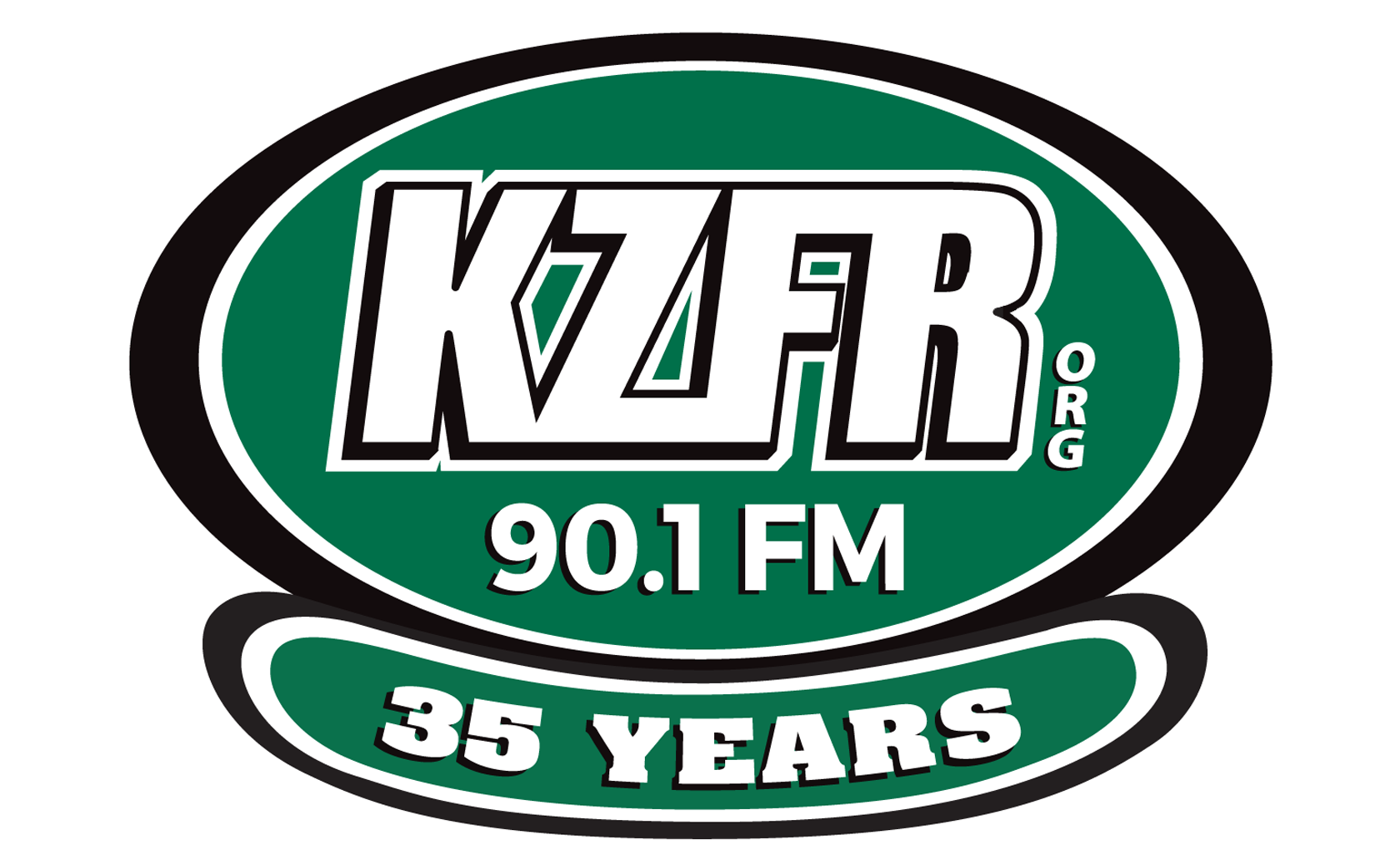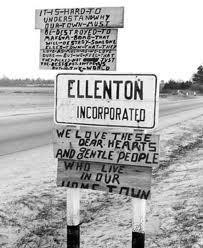Ellenton, South Carolina was incorporated in 1880. A quintessential southern rural community, it was established along a railroad line. Local lore says that it was named Ellen’s Town by the railroad superintendent who was smitten by the beauty of a young local girl. During the post-Civil War Reconstruction Era it had been the center of South Carolina’s civil "disturbances." The “disturbances” were a series of riots sparked by the South Carolina gubernatorial election. The riots all occurred in counties where African Americans were the majority and the Ellenton conflicts culminated with white mobs overwhelming the black citizens, killing at least 39 of them including Simon Coker, a freed slave who had been an elected legislator in the South Carolina House of Representatives.
With the downturn of cotton prices after World War I and the Great Depression of the 1930s the town’s population declined, and by the early 1950s, Ellenton had a population of about 760. But like many small rural communities it still maintained about 30 commercial buildings, a cotton gin, five churches, and two schools, along with a city hall and jail, and a railroad station. It was, in the minds of its residents, a bucolic agricultural, merchant and sawmill town.
Where the broad Savannah flows along to
meet the mighty sea,
There stood a peaceful village that meant all the world to me.
The home of happy people--I knew each and every one,
My kin folk and all the friends I loved---the town was Ellenton.
That all changed with the bombing of Hiroshima and Nagasaki and the advent of the atomic age and the Cold War. In November, 1950 the U.S. Atomic Energy Commission authorized the development a production facility for plutonium and tritium, key components of hydrogen bombs. The commission chose Ellenton and its surrounding environs for the location of The Savannah River Plant. Radiation concerns required that the facility have a 300 square mile perimeter. All residents within this perimeter were to be evicted and the buildings, houses and graveyards of two incorporated towns (Ellenton & Dunbarton) and four unincorporated villages were to be moved or leveled.
After the AEC decision in December 1950 someone posted a handmade sign on the road entering Ellenton:
"It is hard to understand why our town must be destroyed to make a bomb that will destroy someone else's town that they love as much as we love ours. But we feel that they picked not just the best spot in the US, but in the world. We love these dear hearts and gentle people who live in our Home Town."
In all 6,000 people were affected by removal; a significant portion of those forced to leave were African-American farmers and sharecroppers. The government purchased property for ten dollars an acre or less or simply condemned the property. A total of $19 million were spent in the purchase of all the property but subsequent accounting suggests that the lumber in the structures alone was worth $28 million.
But the military
came one day and filled our hearts with woe.
"We'll study war right here," they said, "The little town
must go."
Then they came with trucks and dynamite. The din and dust rose high.
I stood and gazed in silence as I watched my hometown die.
After the exodus all that was left of Ellenton were remnants; curbs, sidewalks, streets and building foundations.
By 1953 the first of the nuclear reactors was started up by DuPont under government contract, and the area boomed as 24,000 people were employed by the plant during the Cold War era.
The little church
was hauled away. The fields are brown and bare,
And in their place a mighty plant. They build the H-bomb there.
Now the smoke hangs o'er the valley like the mist before my eyes,
Has been there ever since the day I said ‘Goodbye.’
By the 1970’s most of the reactors were being shut down, but a few remained operational as production of various nuclear products continued. Today the site is currently operating as The Savannah River Site, a research facility that focuses primarily on “neutralizing” and disposing military and nuclear waste.
Now the homes are
gone, the schoolhouse too, the sweat and toil and tears
And with them all the joys and hopes of past and future years.
“Death of Ellenton” was written by Jesse “Pa” Johnson & Dixie Smith from Greensboro NC in 1951. Pa Johnson and the Johnson Family Singers made a record of it that year. It was also put to vinyl by Rosalie Sorrels on “Somewhere Between” (1964); by The New Lost City Ramblers on “Modern Times” (1968); and by Hank & Shaidri Alrich on “Carry Me Home” (2009).
Theatrical Play: “I Don’t Live There Anymore” http://www.idlta.com/index.htm
Video: "Uprooted"
PLAYLIST:
David Grisman & Jerry Garcia The Thrill is Gone from Grisman & Garcia
Jerry Garcia Acoustic Band Swing Low, Sweet Chariot from Almost Acoustic
The Country Gentlemen Can't You Hear Me Calling from The Young Fisherwoman
The Country Gentlemen I am Weary, Let Me Rest from The Young Fisherwoman
John Hartford Doin' My Time from Steam-Powered Aereo-Takes
Misty River The Last Thing on My Mind from Rising
Cliff Waldron Four Strong Winds from The Best of Cliff Waldron
Cliff Waldron Close the Door Lightly When You Go from The Best of Cliff Waldron
Chris Smither Frankie & Albert from Avalon Blues: The Music of Mississippi John Hurt
The Adcock Family Shady Grove from Some Summer Day
Hank Williams Mansion on a Hill from The Garden Spot Radio Programs Broadcast (1950)
Hank Williams Garden Spot Jingle from The Garden Spot Radio Programs Broadcast (1950)
Hank Williams Lovesick Blues from The Garden Spot Radio Programs Broadcast (1950)
Hank Williams Fiddle Tune from The Garden Spot Radio Programs Broadcast (1950)
Hank Williams I've Just Told Mama Goodbye from The Garden Spot Radio Programs Broadcast (1950)
Hank Williams Closing/Oh Susanna from The Garden Spot Radio Programs Broadcast (1950)
Harvey Reid & Joyce Andersen The Great Sad River from The Great Sad River
Harvey Reid & Joyce Andersen Well, Well, Well from The Great Sad River
Lonestar Cowboys Deep Elm Blues (1933) from Folk Music in America Vol. 12
The Carter Family It'll Aggravate Your Soul (1934) from Folk Music in America Vol. 12
Gail Gardner The Syerry Petes (1975) from Folk Music in America Vol. 12
Papa Charlie Jackson Lexington Kentucky Blues (1928) from Folk Music in America Vol. 12
The Johnson Family Singers The Death of Ellenton (1951) from Folk Music in America Vol. 12
The New Lost City Ramblers The Death of Ellenton (1968) from Modern Times
John Sebastian & the J Band Jug Band Music from Chasin' Gus's Ghost
John Sebastian & the J Band Ain't No Where to Hobo Anymore from I Want My Roots
The Bing Bang Boys Farmland Blues from I'm Feeling Good!
Jim Kweskin, Geoff Muldaur, David Grisman Blues My Naughty Sweetie Gave To Me from Jug Band Extravaganza
The Even Dozen Jug Band Sadie Green from The Even Dozen Jug Band
Barbara Dane & The Chambers Brothers This Little Light of Mine from Hot Jazz, Cool Blues and Hard-Hitting Songs
Barbara Dane & Doc Watson You Don't Know Me, You Don't Know My Mind from Hot Jazz, Cool Blues, and Hard-Hitting Songs
Barbara Dane & Doc Watson Salty Dog Blues from Hot Jazz, Cool Blues, and Hard-Hitting Songs
Eddie Adcock & Don Reno Bye Bye Blues from Sensational Twin Banjos
Eddie Adcock & Don Reno Good Bye to Eliza Jane from Sensational Twin Banjos
James Alan Shelton Freight Train from Song for Greta
Norman Blake & Red Rector The GIrl I Left Behind from Norman Blake & Red Rector
Mac Wiseman & the Osbourne Brothers I'm a Stranger Here from American Gothic
Carl Story & His Rambling Mountaineers Rank Stranger from American Gothic
The Freight Hoppers Down On Me from Mile Marker
The Possum Ridge String Band Red Haired Boy from On the Road Again
The Foghorn String Band Mining Camp Blues from Devil in the Seat
Chance McCoy & the Appalachian String Band Davy Come Back and Act Like You Ought To from Debut
Chance McCoy & the Appalachian String Band Greasy Coat from Debut
Fuzzy Mountain String Band Wild Hog in the Woods from Fuzzy Mountain String Band
Shemekia Copeland Uncivil War (new release)
Maria Dunn We Were Good People from We Were Good People









